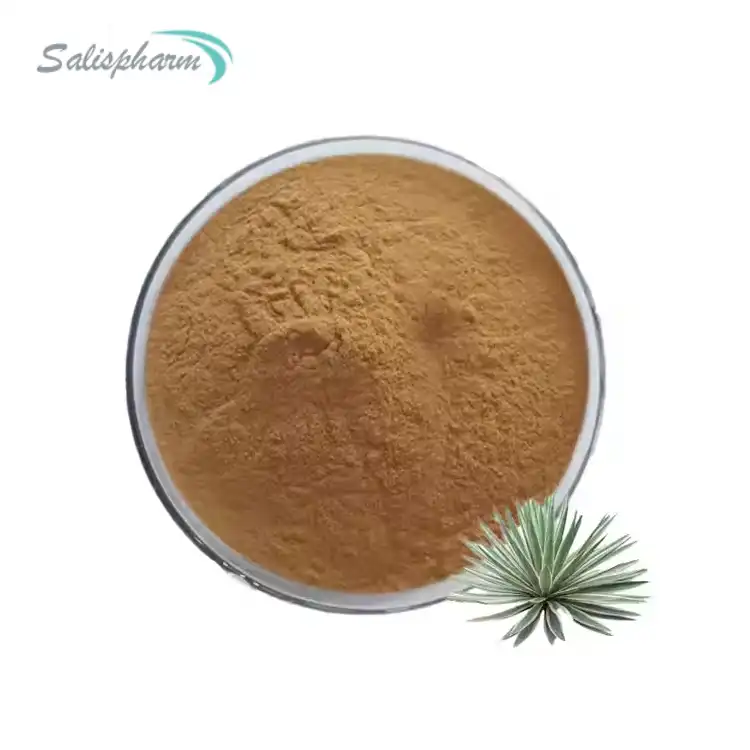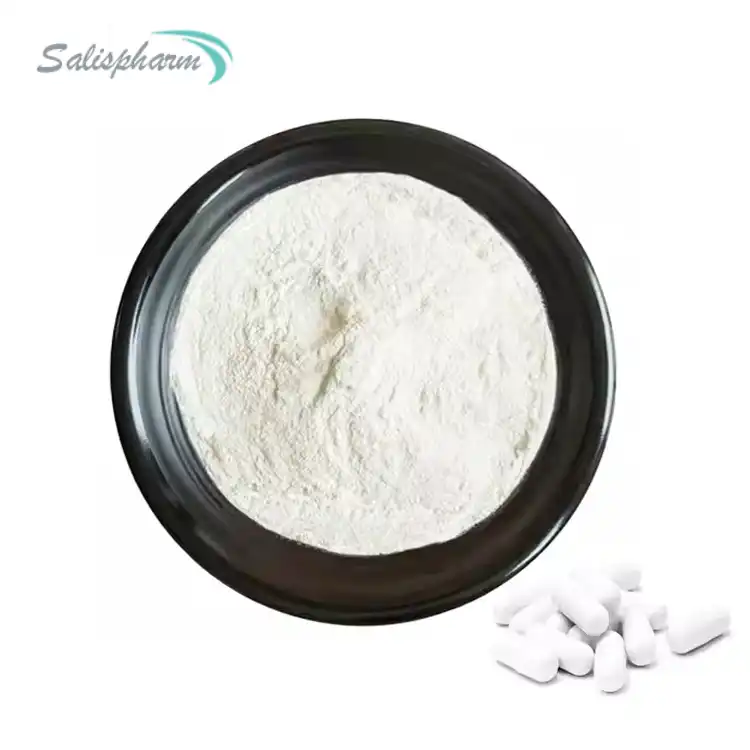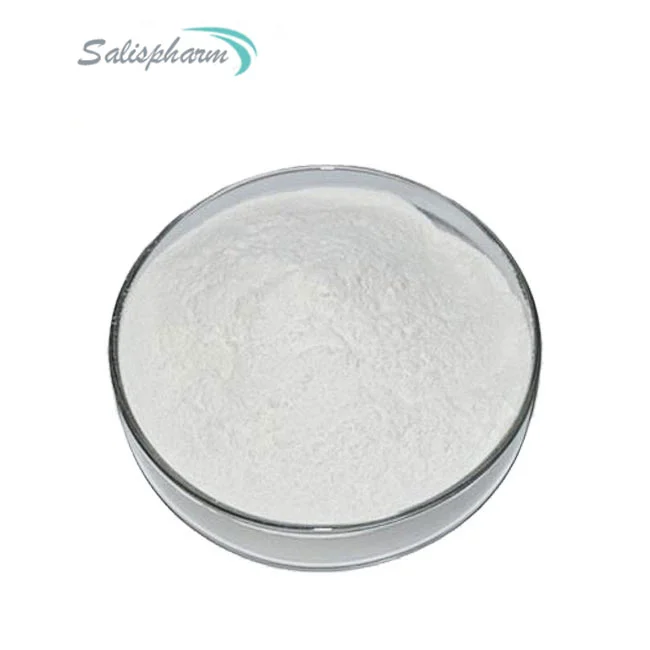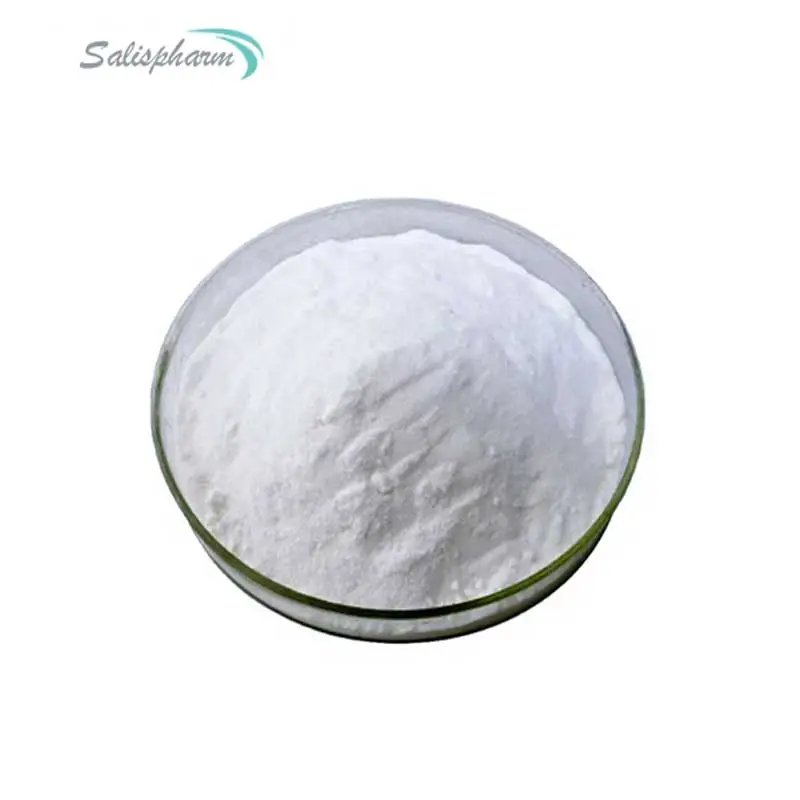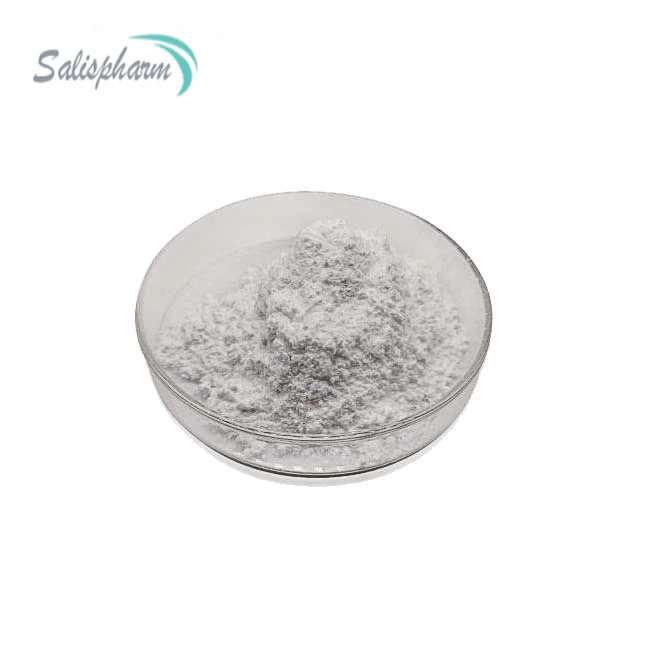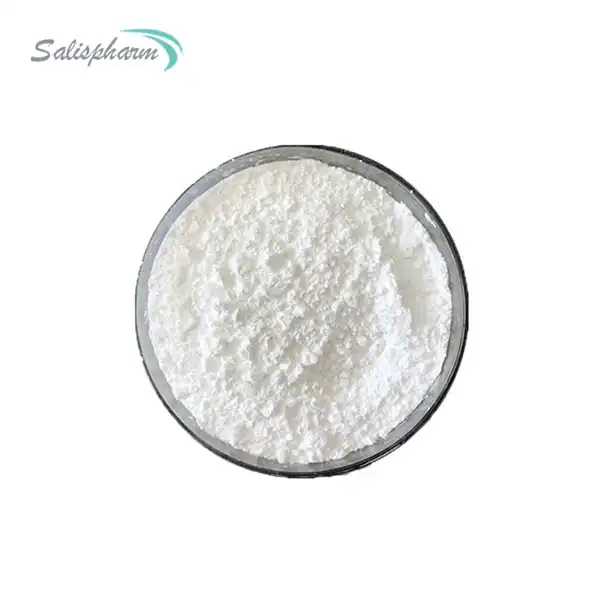Acid reflux, also known as gastroesophageal reflux disease (GERD), is a common digestive issue that affects millions of people worldwide. For those seeking relief from the uncomfortable symptoms of acid reflux, cimetidine has emerged as a potential solution. This blog post will explore the effectiveness of Cimetidine Powder in treating acid reflux and provide valuable insights into its use as a therapeutic option.
How does cimetidine work to reduce acid reflux symptoms?
Cimetidine belongs to a class of medications known as histamine-2 (H2) receptor antagonists. These drugs work by blocking the action of histamine on the stomach's parietal cells, which are responsible for producing stomach acid. By inhibiting this process, cimetidine effectively reduces the overall production of stomach acid, thereby alleviating the symptoms associated with acid reflux.
When stomach acid production is decreased, there is less likelihood of acid flowing back into the esophagus, which is the primary cause of acid reflux symptoms. This mechanism of action makes cimetidine an effective option for managing both occasional and chronic acid reflux.
The onset of action for cimetidine is relatively quick, with many users experiencing relief within an hour of taking the medication. Its effects can last for several hours, providing extended relief from acid reflux symptoms throughout the day or night. This rapid and long-lasting action makes cimetidine particularly useful for those who suffer from nighttime acid reflux, as it can be taken before bed to prevent symptoms that might otherwise disrupt sleep.
In addition to its direct effect on acid production, cimetidine may also help to promote healing of the esophageal lining that has been damaged by frequent acid exposure. By reducing the amount of acid in the stomach, the esophagus is given an opportunity to recover from the irritation and inflammation caused by acid reflux.
It's worth noting that while cimetidine is effective for many people, its efficacy can vary from person to person. Some individuals may find that they respond better to other H2 receptor antagonists or to proton pump inhibitors (PPIs), another class of acid-reducing medications. As with any medical treatment, it's essential to consult with a healthcare provider to determine the most appropriate approach for managing acid reflux symptoms.
What are the advantages of using Cimetidine Powder for acid reflux treatment?
Cimetidine powder offers several advantages over other forms of the medication when it comes to treating acid reflux. The powdered form provides greater flexibility in dosing and administration, making it an attractive option for many patients and healthcare providers.
One of the primary benefits of cimetidine powder is its versatility. The powder can be easily mixed with liquids or soft foods, making it an ideal choice for individuals who have difficulty swallowing pills or tablets. This is particularly beneficial for elderly patients or those with swallowing disorders, who might otherwise struggle with traditional oral medications.
The powder form also allows for more precise dosing. Healthcare providers can tailor the dosage to each patient's specific needs, potentially leading to better symptom control and fewer side effects. This level of customization is especially valuable in treating acid reflux, as the severity and frequency of symptoms can vary greatly from one individual to another.
Another advantage of cimetidine powder is its rapid dissolution and absorption in the body. When mixed with liquid, the powder form can be quickly absorbed in the gastrointestinal tract, potentially leading to faster relief of acid reflux symptoms compared to tablet or capsule forms. This rapid onset of action can be particularly beneficial for individuals experiencing acute episodes of heartburn or acid reflux.
Cimetidine powder may also be more cost-effective than other forms of the medication, especially for patients who require long-term treatment for chronic acid reflux. The powder form often comes in bulk quantities, which can be more economical than purchasing individual tablets or capsules.
For patients with specific dietary restrictions or sensitivities, cimetidine powder may be preferable as it typically contains fewer additives and fillers compared to tablet or capsule forms. This can be particularly important for individuals with allergies or those following strict dietary regimens.
Healthcare providers may find cimetidine powder to be a useful option in hospital or clinical settings, where it can be easily incorporated into liquid medications or feeding tubes for patients who are unable to take oral medications.
It's important to note that while cimetidine powder offers these advantages, it should always be used under the guidance of a healthcare professional. Proper storage and handling of the powder are crucial to maintain its effectiveness and safety. Patients should follow their healthcare provider's instructions carefully regarding dosage and administration to ensure optimal results in managing their acid reflux symptoms.
Can Cimetidine Powder be combined with other treatments for better acid reflux control?
Cimetidine powder can indeed be combined with other treatments to enhance acid reflux control, offering a more comprehensive approach to managing this common digestive issue. This combination therapy strategy can be particularly beneficial for patients who experience persistent or severe symptoms despite monotherapy with cimetidine or other acid-reducing medications.
One of the most common combinations is the use of cimetidine powder alongside proton pump inhibitors (PPIs). While both medications work to reduce stomach acid production, they do so through different mechanisms. Cimetidine blocks histamine receptors, while PPIs inhibit the proton pumps responsible for the final step of acid secretion. When used together, these medications can provide more complete acid suppression, leading to better symptom control and faster healing of esophageal damage caused by acid reflux.
Antacids are another class of medications that can be effectively combined with cimetidine powder. While cimetidine works to reduce acid production over time, antacids provide immediate relief by neutralizing existing stomach acid. This combination can be particularly useful for patients who experience breakthrough symptoms or need rapid relief in addition to long-term acid suppression.
Lifestyle modifications are an essential component of acid reflux management, and cimetidine powder can be used in conjunction with these changes for optimal results. Dietary adjustments, such as avoiding trigger foods and eating smaller, more frequent meals, can complement the acid-reducing effects of cimetidine. Similarly, elevating the head of the bed, losing weight if necessary, and avoiding lying down immediately after meals can enhance the effectiveness of medication therapy.
For patients with nighttime acid reflux, combining cimetidine powder with melatonin supplements has shown promise in some studies. Melatonin, a hormone that regulates sleep-wake cycles, may help strengthen the lower esophageal sphincter, reducing the likelihood of nighttime reflux episodes. When used alongside cimetidine, this combination can lead to improved sleep quality and reduced nocturnal symptoms.
In cases where acid reflux is exacerbated by anxiety or stress, cimetidine powder can be used in conjunction with stress-reduction techniques or, in some cases, anti-anxiety medications. Managing stress can help reduce the frequency and severity of acid reflux episodes, while cimetidine continues to provide acid suppression.
For patients with concurrent digestive issues, such as peptic ulcers or gastritis, cimetidine powder can be part of a multi-faceted treatment approach. It may be combined with other medications like sucralfate, which forms a protective barrier over inflamed or ulcerated areas of the digestive tract.
Probiotics are another complementary treatment that can be used alongside cimetidine powder. While probiotics don't directly affect acid production, they can help maintain a healthy balance of gut bacteria, potentially reducing inflammation and improving overall digestive health.
It's crucial to note that while these combination approaches can be effective, they should always be implemented under the guidance of a healthcare professional. Some combinations may interact or affect the absorption of medications, so careful monitoring and adjustment of dosages may be necessary.
In conclusion, cimetidine powder offers a versatile and effective option for managing acid reflux symptoms. Its mechanism of action, combined with the advantages of the powder form, makes it a valuable tool in the treatment of GERD. When used alone or in combination with other treatments, cimetidine can provide significant relief for many patients struggling with acid reflux. As with any medical treatment, it's essential to work closely with a healthcare provider to develop the most appropriate and effective treatment plan for individual needs.
If you are also interested in this product and want to know more product details, or want to know about other related products, please feel free to contact iceyqiang@aliyun.com.
References
1. Katz, P. O., Gerson, L. B., & Vela, M. F. (2013). Guidelines for the diagnosis and management of gastroesophageal reflux disease. American Journal of Gastroenterology, 108(3), 308-328.
2. Kahrilas, P. J., Shaheen, N. J., & Vaezi, M. F. (2008). American Gastroenterological Association medical position statement on the management of gastroesophageal reflux disease. Gastroenterology, 135(4), 1383-1391.
3. Savarino, V., Di Mario, F., & Scarpignato, C. (2009). Proton pump inhibitors in GORD: An overview of their pharmacology, efficacy and safety. Pharmacological Research, 59(3), 135-153.
4. Holtmann, G., Cain, C., & Malfertheiner, P. (1999). Gastric Helicobacter pylori infection accelerates healing of reflux esophagitis during treatment with the proton pump inhibitor pantoprazole. Gastroenterology, 117(1), 11-16.
5. Fass, R., Shapiro, M., Dekel, R., & Sewell, J. (2005). Systematic review: Proton-pump inhibitor failure in gastro-oesophageal reflux disease - where next? Alimentary Pharmacology & Therapeutics, 22(2), 79-94.
6. Richter, J. E. (2009). The management of heartburn in pregnancy. Alimentary Pharmacology & Therapeutics, 30(7), 660-673.
7. Poynard, T., Lemaire, M., & Agostini, H. (1994). Meta-analysis of randomized clinical trials comparing lansoprazole with ranitidine or famotidine in the treatment of acute duodenal ulcer. European Journal of Gastroenterology & Hepatology, 6(8), 661-665.
8. Tutuian, R., & Castell, D. O. (2006). Management of gastroesophageal reflux disease. The American Journal of the Medical Sciences, 331(6), 309-318.
9. Vakil, N. (2010). Disease definition, clinical manifestations, epidemiology and natural history of GERD. Best Practice & Research Clinical Gastroenterology, 24(6), 759-764.
10. Tytgat, G. N. J., McColl, K., Tack, J., Holtmann, G., Hunt, R. H., Malfertheiner, P., ... & Batchelor, H. K. (2008). New algorithm for the treatment of gastro-oesophageal reflux disease. Alimentary Pharmacology & Therapeutics, 27(3), 249-256.




